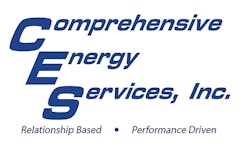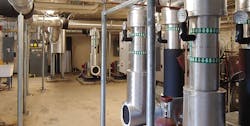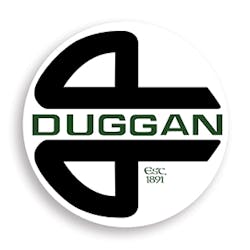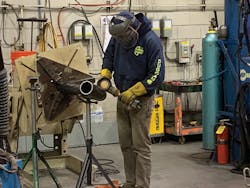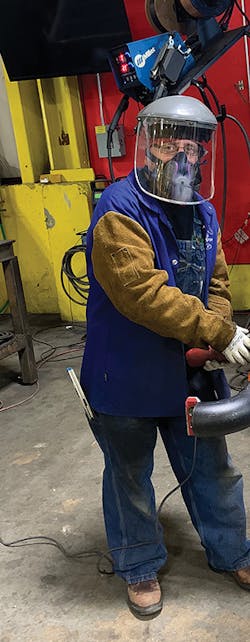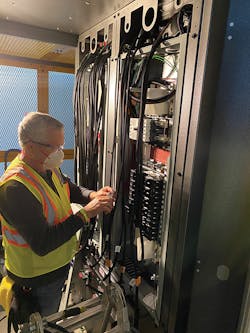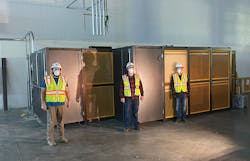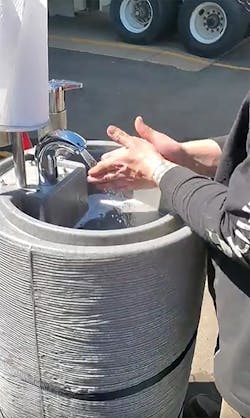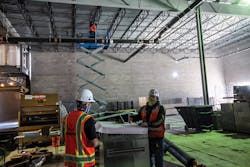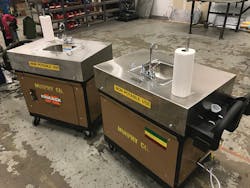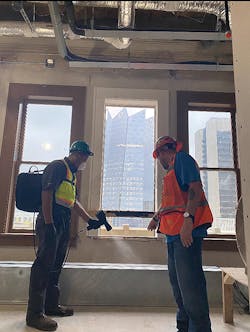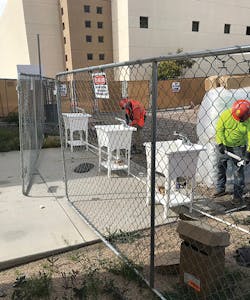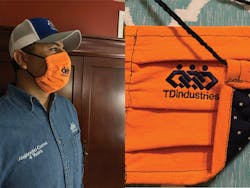Industry Giants Respond to COVID-19
On January 19, a 35-year-old man arrived at an urgent care clinic in Snohomish County, Washington with a four-day history of cough and fever. He told the healthcare providers that he had returned to Washington State on January 15 after traveling to visit family in Wuhan, China. After seeing alerts on the television from the CDC, he decided to come in for testing. As it turns out, his was the first confirmed case of the 2019 Novel Coronavirus (COVID-19) in the United States. (The patient eventually recovered.)
Since then, well, a lot has happened. More than a million cases have been reported—and more than 70,000 Americans have died. Over five days in February the stock market lost more than three trillion dollars in value. More than 30 million Americans have filed for unemployment. The federal government has spent something on the order of three trillion dollars to try and stimulate the economy. All across the country people are isolating, practicing social distancing, wearing masks and other personal protective equipment, and somehow trying to homeschool their children.
And businesses are suffering. Most are temporarily shuttering, but some (particularly those working on extremely thin margins) simply do not have the capital to survive. In the city of Chicago, just to take one example, it is estimated that perhaps ten percent of restaurants will never reopen.
The plumbing and heating trades have been deemed essential services, which means plumbers can answer emergency calls. But people are scared, unwilling to allow tradespeople into their homes unless it is absolutely necessary. New construction—residential, commercial, municipal, institutional—is at a standstill. And remodeling work has been put off until better days.
But the rate of new infections nation-wide is beginning to decline. States are starting to ease restrictions on businesses. People are starting to look to the restart (or reboot) of America, and everyone is wondering what the “new normal” will look like.
Usually, for our May issue, CONTRACTOR does a survey of the largest mechanical contractors in the nation, asking about their income and revenue, breaking it down by type of work and geographical areas. We hope to return to that coverage next year. But this year those numbers don’t tell the story that needs telling. Instead, we decided to interview a small group of our Giants and see how they were dealing with the pandemic, and what their hopes were for the future.
Comprehensive Energy Services: Creativity Amid Crisis
LONGWOOD, FL — Design-build mechanical contractor Comprehensive Energy Services, owned by Todd and Shelly Morgan, is based in the metro Orlando area. In addition to its headquarters in Longwood the company has three additional Florida locations—Gainesville, Pompano and Tampa—and more than 250 employees.
Todd Morgan has a civil engineering degree but had no desire to sit behind a table all day. So he joined one of the top design-build mechanical contracting firms in the country right out of school. He traveled extensively, even working on the company’s first international project. “It was the best of both worlds: being part of a physical building going up and then utilizing the engineering background and education I had,” Morgan notes.
Eventually he ended up in Orlando at the firm’s first branch in Florida. It was there he acquired the ”entrepreneurial itch” and, in 1992, the Morgans started CES. “We got off to a good start and continued to build our relationships,” Todd Morgan, CES president, says. “That became our tagline for success throughout all these years: ‘Relationship-based, performance-driven.’”
Right away, Comprehensive Energy Services landed two big clients—Walt Disney Word and Universal Studios Florida. It also snagged a National Design-Build Award for its work at Legoland Florida. “I know we've been doing more attractions than any other mechanical contractor in Central Florida,” Morgan notes. “It's our niche market. We end up doing about 90 percent of the mechanical work in their attractions.”
The design-build contractor does more than the standard HVAC and plumbing, he adds. It also designs and installs special effects, such as the Twister and Terminator 2-3D attractions at Universal Studios Florida, and the iceberg re-creation as part of the traveling Titanic exhibition. “We're usually involved in the design and behind the scenes, helping create those special effects,” Morgan says.
COVID-19 has shuttered theme parks for the time being, just as CES was working on a new attraction project. The CES crew was able to get about half of it completed before full shutdown, Morgan notes. Some parks are letting HVAC techs and plumbers in to complete maintenance or small renovation projects. Office staff works remotely when practical.
He acknowledges that the company has been hit hard as the hospitality and entertainment sectors are nearly all shut down. About 35 percent of CES’ business is service, and that ramped down slower than the construction segment. However, instead of laying his employees off, he was able to offer them furloughs—a sort of “temporary leave of absence” where CES continues to pay for health benefits, yet employees can still apply for unemployment insurance benefits.
“I didn't even know what a furlough was until our HR director explained it,” he says. “At this time, when everyone's health is really of concern, the last thing we want to do is take away their health benefits. We made sure that we continued them and paid 100 percent of it.”
Any work CES crews are doing offsite requires them to don masks, gloves and the usual PPE they use to complete the job.
The Morgans have looked to see what internal projects are needed to bring some of their people back with appropriate social distancing and PPE. Some are changing out the older equipment in the office. Some are painting and doing other upgrades to the office and shop areas.
“We've been all brainstorming on what we can do,” Todd Morgan explains. “Neil, our construction manager, came up with the creative idea to manufacture ICRA booths.” ICRA booths, used at hospital jobsites, filter air. They allow tradespeople to work above the ceiling without getting dust into patient rooms, operating rooms, etc. They are made from sheet metal, filters and motors.
“We need to ramp up our production on these, which gives us something to put our guys back to work on, and then it's something that has value,” he says. “Not only for ourselves, but we can sell them. We've already got a distributor lined up with that. It's thinking very creatively—our whole team does that.”
CES also is prefabbing inventory for when work comes back—such as plumbing fixtures for restaurants and office buildings. In Florida, Phase 1 of its reopening plan began on May 4, with retail and restaurants allowed to open with limited capacity. Theme parks will have to wait until Phase 2 before they can begin to reopen.
Philanthropically, Shelly Morgan has had dinners sent to employees’ homes, as well as to other needy families in Central Florida. The company also provides some lunches for employee families, just asking them to provide a generous tip for restaurant workers. The company has given employees loans to tide them over until they receive their unemployment funds. These are only a few things the Morgans are doing to help their team in these very difficult circumstances.
“We're holding onto our people and we're getting as creative as we can so that when things do get released, we're not going to have a shortage of workers,” Todd Morgan says. “We'll have people in the three-point stance, ready to go.”
E.M. Duggan: Positives Out of Negatives
CANTON, MA — E.M. Duggan operates out of four buildings in Canton and another in Boston. In 2019, they reported revenues of $212 million. Their success has been a family project that has brought the business to the cusp of its 130th anniversary. Len Monfredo, Executive Vice President of Operations, LEED A.P. with E.M. Duggan is the fifth generation in the business.
The company has made a name for itself by looking to the future. They have their own innovation and technology group with dedicated BIM and CAD programmers on staff. They began to invest in prefabrication back in 1967 and now have two state-of-the art prefab shops that cover over 120,000 sq. ft. But for all their foresight, there was no way to prepare for what the COVID-19 virus would do to their markets or their business.
“In a normal recession you see it coming a year or two out,” Monfredo says. “This was like turning off a light switch. Boom.”
Carrying on in an Outbreak
At the moment, E.M. Duggan’s service division is working at capacity, doing the essential work of dealing with emergency situations throughout the company’s operating area. Since the outbreak of the pandemic all E.M. Duggan employees have been wearing PPE and observing social distancing guidelines. “That group is doing well,” Monfredo says. “We—knock on wood—have had no issues with that group safety-wise.”
The bad news is that the service division is currently the company’s only revenue generator. More than 330 employees have been furloughed. The office is down to a skeleton staff of just 10-12 people, all of whom wear protective masks around the office. On the rare occasions that call for group meetings, everyone masks up, maintains a six- to eight-foot separation, and the conference room door stays open to promote air movement.
“Most of our stuff is done through Zoom meetings and Goto meetings,” Monfredo explains. “People who are in the office are there by choice. We have about 120 office staff and 90 percent of them are working from home.” The company has provided office staff with the tools they need to do their jobs—laptops, monitors, phones, tablets etc.—but Monfredo admits the transition has been a challenge.
In the midst of that challenge, E.M. Duggan has tried to support its community in Canton and the greater Boston area as best it can. The company installed a temporary chiller for a hospital in Dorchester treating COVID-19 patients. E.M. Duggan has also donated masks and offered help to health care workers and first responders.
The Shape of the Restart
By May 18th, E.M. Duggan hopes to see some of its people back in the field as a few of its job sites start operation once more. “The problem is,” Monfredo explains, “it’s not like we can just flip a switch, that’s not realistic… We’ll be happy if we get our foremen and our seconds back up and running by July-August, which is something like less than half the staff we would typically have in the field.”
Part of the problem will be a new host of safety concerns when working large job sites. E.M. Duggan has a dedicated safety director with coordinating safety managers, and they have a lot of new information to process and new safeguards to implement. Working with local politicians, unions, and health care professionals, the company is trying to find ways to keep job sites free from infection.
Until a vaccine is found, that almost certainly means a much less crowded job site than before. Things like staggered shifts, staggered start times and multiple shifts have all been discussed. A particular challenge is not just the large jobs, it’s the tall jobs. How do you socially distance in an elevator that everyone has to cram into?
“Now you’re going to be lucky if you can get two, three people into a car at once,” Monfredo says. The alternative is going to be walking up, or taking up all the tools and supplies needed for the day and just not coming down. “Productivity is going to go down for sure, and it’s no one’s fault, it’s just going to be reality.”
E.M. Duggan is working alongside general contractors and owners to try and determine how much time will be lost and who will end up responsible for making that time up. “Everyone is going to have to—unfortunately—take a bite of that sandwich,” Monfredo says.
Silver Linings
Monfredo has high praise for what he calls E.M. Duggan’s greatest asset: it’s people. “The team of people that we have leading the company right now are amazing. The people that are working right now, even though it’s extremely hard, are doing an incredible job. Everyone who isn’t working can’t wait to get back to work.”
And for all the human pain and suffering the crisis is causing, Monfredo feels that there are long-term positives that will come out of this period in American history. “There are always positives that come out of negatives,” he says. “There’s the newfound appreciation that people have for the medical community, the appreciation that people have for teachers.” (On that last point, Monfredo speaks from experience—he has a three-year-old, a six-year-old and an eight-year-old who are all being homeschooled.)
Monfredo also hopes that there will be long-term changes to the supply chain, particularly when it comes to protective equipment and pharmaceuticals. If it’s vital to America’s interest, he feels it should be manufactured here in America.
“At the end of the day,” Monfredo says, “I hope it’s a wake-up call, not just for us but for the whole world.”
McKinstry: Above, Beyond and Forward
SEATTLE, WA — In light of a worldwide pandemic, McKinstry, a top national contractor specializing in consulting, construction, energy and facility services, is faring relatively well.
While the company has seen some of its non-essential construction jobsites shut down, it is seeing steady work in its mobile service team and its energy retrofit and consulting teams.
Like many in the industry, protocol adjustments have been made as a result of COVID-19. The Seattle-based construction engineering company has implemented safe work procedures, including social distancing protocols. McKinstry’s teams that are in clients’ buildings have been following site specific procedures. For example, protocols that allow only one person to open and close doors using a barrier and have implemented strict procedures for wiping down/sanitizing surfaces.
In the field, teams wear face coverings and practice social distancing. Company policy requires 100 percent facial coverings when in a community setting. An approval process through a designated Social Distancing Executive is required for any work where social distancing or engineering controls are not effective. This approval is dependent of the critical nature of the task, the steps attempted to maintain social distancing, and an explanation of why it was not feasible. If approved, issuance of PPE is permitted and includes respirators and other required PPEs depending on the potential exposure risk. Meanwhile, back at the office, staff are all primarily working from home. For those essential employees who must be in the office, they are wearing face coverings and gloves.
“Our safety team has developed site- and task-specific safety plans to ensure our workers are following social distancing protocol and proper hygiene, says Brian Antonsen, vice president of mechanical construction, McKinstry. “Our teams are empowered to speak up if they observe unsafe behaviors and are encouraged to share best practices.”
Furthermore, training has been conducted on social distancing requirements, daily assessment of COVID-related symptoms is conducted by employees and McKinstry account managers are working in close partnership to assess clients’ requirements and site’s exposure risk.
Opportunities and Outreach
McKinstry has seen opportunities to help its clients in ways that it may not have before. For instance, the company quickly mobilized to help a Seattle hospital transition patient rooms to COVID-19 patient isolation rooms. “Our work has been instrumental in supporting hospitals to safely care for those infected with COVID-19,” says Antonsen, and the company also has developed a plan for repurposing its fabrication shop to produce face shields for another client. In addition, McKinstry is supporting many of its clients with additional plumbing, handwash and sanitation services.
McKinstry believes that it is in times like this are when community outreach and engagement is needed most. “We’ve answered the call to help our neighbors by donating to food banks across the country and providing equipment needed to set up an emergency food distribution center near our offices in south Seattle. Our employees continue to volunteer with organizations they support throughout the year—our team in Portland has been continuing to make no-contact deliveries for Meals on Wheels and our team in Spokane is partnering with Second Harvest to ensure meals are delivered to a local school district food distribution site. Informal groups have also begun making and donating masks, writing letters to residents of nursing homes and sending notes of thanks to healthcare workers,” says Antonsen.
Where do we go from here? Getting back to the concept of a “new normal” means that everything is on the table at McKinstry, from taking temperatures of people as they enter the workplace, to staggered shifts and other protocol to maintain social distancing. Office spaces might look more like jobsites during the early phases of returning to the workplace. Nevertheless, McKinstry is continually mapping out these unchartered waters. The company has brought together leaders from across the company to identify the best path forward. “We realize it will take time to get back to some semblance of ‘normal,’ but we are plotting a deliberate phased approach to return teams to the workplace,” says Antonsen.
Over these past few months, global, national and local economies have suffered, and while companies are changing protocols on the fly, McKinstry has successfully positioned itself through responsibility—to community and employee safety. “McKinstry has really lived into its values during this crisis,” says Antonsen. “Our number one value is ‘put people first’ and from the beginning all of our decisions have been made to ensure the safety of our people. We were among the first companies in Seattle to have employees work from home and we are working hard to ensure our people keep their jobs.”
Murphy Co.: A Strategy of Sustainability
ST. LOUIS, MO — Mechanical contracting firm Murphy Co., headquartered in St. Louis, has four additional locations in Colorado: Boulder, Colorado Springs, Denver and Fort Collins. Patrick J. Murphy Jr. is the fourth-generation owner of the 113-year-old firm started by his great-grandfather.
Murphy, who has bachelor’s degrees in finance and business economics, took over as president and CEO in 2004. And while he helmed the company through the Great Recession of 2008-2009, it was nothing compared to what the entire nation is enduring now with the COVID-19 global pandemic.
“We are following the advice of the CDC and our government officials,” he says. “We have avoided speculating on all the ‘what if’s’ as it can be distracting and add little value to the organization. Financially, we have been building a very strong balance sheet through excellent execution over the last several years and proactive cash management.”
For Murphy Co., technology is critical to the continued operation of the five branches. “Our technology investments over the years are paying enormous dividends as more than 90 percent of our team is working remotely,” Murphy explains. “We have been overcommunicating with our craft and staff and utilizing a weekly video to add a personal touch to our information planning.”
For staff needing to be in the office, they are practicing social distancing and the cleaning team is continuously cleaning surfaces and high-touch areas, he adds.
During the stay-at-home orders, the Murphy Co. team took on work with its health-care partners in preparation for the necessary capacity in the hospitals. At the St. Joseph Hospital in St. Louis, team members figured out a way to install temporary ductwork along the building to turn ordinary hospital rooms into negative-pressure rooms. The ventilation in these rooms allows air in but not out, keeping any contaminated air inside the rooms.
As the COVID-19 virus is transmitted through droplets from coughing or sneezing, this ventilation method is thought to reduce the spread of the disease in hospitals or other health-care settings. Murphy Co. designed a system where the ductwork is fed through a window in the room, with HEPA filtration located on the roof.
Murphy Co. converted rooms at two other hospitals—St. Anthony North Health Campus in Westminster, Colo., and the SSM Health DePaul Hospital in Bridgeton, Mo.—into negative-pressure rooms. Each project had different design challenges, but pre-fabrication methods and quick installation met the needs of the health-care institutions.
Concerned about the safety of jobsite crews, Murphy Co. designed its own portable handwashing stations, an idea generated by Vice President Scott McIntosh. Several prototypes were created by the Denver fabrication shop. Drawings were shared with the St. Louis shop, which used the materials available to it to create iterations of the rectangular and round sinks.
Both Colorado and Missouri have started to cautiously open up more businesses in their states. Colorado ended its more restrictive orders on April 27, and Missouri’s order expired May 4.
“With regard to bringing our employees back to the offices, we will follow the guidelines of the CDC and our local officials,” Murphy says. “We are reviewing the specific adjacencies, staffing requirements and spacing to minimize the potential spread of the virus.”
He is quick to point out that his family’s company resiliency as it has withstood much over its century-plus history.
“Our overall company strategy is built upon sustainability,” Murphy explains. “During the last 113 years, our company has survived through many crises—Spanish Flu, the Great Depression, two world wars, the Korean War, Vietnam, recessions, 9/11, and the most recent Great Recession.
“After we get through the COVID-19 pandemic, we will be a better company. We have adapted to ever-changing conditions. We learned new skills which will allow the organization to continue to grow its capabilities, quality of services and create new opportunities for our people to provide increased value to our customers. Because of the outstanding members of our team, we will not only survive the challenging times, but also thrive in the good times.”
TDIndustries: Navigating Success in the ‘New Normal’
DALLAS, TX — While TDIndustries (TD)—a specialty mechanical contractor and facility services company—isn’t entirely sure what its new normal is going to look like, the company is actively working to keep its customers, clients, and partners safe and prepared for upcoming challenges. In the meantime, TD is very fortunate to be designated an essential services company, and similarly privileged to have a strong balance sheet and strong leadership that have been able to guide it through this unusual time.
“While we have seen some projects put on hold, they are coming back. This, coupled with TD’s diverse offerings in both construction and service, as well as our multiple geographical locations, has helped minimize our reduction in force. Our supply chain is also resilient, and we have been able to still meet our commitments on our projects,” says Hattie Peterson, senior vice president of marketing and communications.
TD’s engineering team has been busy lately: On one end of the spectrum, they’re researching, analyzing and consulting on the best technologies to improve indoor air quality on customers’ projects. On the other, they’re heavily involved in several design-build, fast-track projects. Many healthcare companies are preparing for second waves and future code changes, while commercial offices and educational facilities are planning for new ways to protect their tenants, workers and students when they return to work.
As a company, TD is following all state and local regulations on re-opening offices and support work. The company continuously updates its procedures to adapt to what this new normal may require. “As the company begins to prepare to return to the workplace, TD’s engineering team has been very active in identifying solutions that our customers can use to reduce the risk of infection and improve air quality in their facilities. These include identifying viable HVAC system solutions, assessments of current equipment, as well as options for installing touchless systems,” says Peterson.
In addition, TD has installed wash stations with soap or sanitizer at each jobsite; and its San Antonio and Arizona branches recently worked with a few local distilleries to purchase hard-to-find hand sanitizer for their field and service partners.
TD is an active advisor when it comes to mechanical processes, but the critical nature of reopening the economy while simultaneously preparing for future spikes in COVID-19 cases has made MEP subcontractor early involvement crucial. Recently, TD hosted a webinar to discuss possible options for its customers. You can visit https://www.tdindustries.com/en/best-practices-of-indoor-air-quality-in-the-wake-of-covid-19 to view the webinar.
Safety Is Paramount
While most office staff are working from home, for those that do need to be in the office, face coverings, temperature checks and digital sign-in/sign-out sheets are required. Additional efforts include a weekly wellness check-in through internal Facebook and communications portals. These check-ins include stress reduction tips including breathing exercises and yoga moves, as well as leadership training and Partner Appreciation acknowledgements from not only leadership, but peer-to-peer.
In the field, TD is requiring temperature checks before arriving to the jobsite and wearing face coverings on every jobsite and in its facilities. TD continues to encourage its partners to use their stop-work authority if they see unsafe actions or social distancing violations. For tasks that require working in close proximity—less than 6 feet—protocols encourage partners, foremen and leadmen to innovate, use additional equipment, or find other ways to mitigate the risk of transmission. “We anticipate some heavy editing to indoor air quality standards, new workplace procedures—both short-term like face coverings, 6-foot distancing and directional walking routes, and longer term such as electronic sign-in sheets and more teleworking opportunities,” says Peterson. “Our project and service teams are offering contactless reporting and e-signatures through our Visual Intelligence program. We’ve also revised our cleaning protocols to reduce transmission and scheduled many alternative methods for cleaning, inspecting and maintenance.”
TD’s Servant Leadership culture is shining through. Partners are coming together to support one another whether financially through its TDCares program, or emotionally as it finds ways to stay positive during this unprecedented time. Partners are also finding new ways to accomplish their work and many of their new methods and innovations will help TD becomes more efficient and productive long after COVID-19 is gone.
“The COVID-19 pandemic has brought the construction industry closer as we all strive to find creative solutions to protect our partners working in the field,” says Peterson. “It certainly hasn’t been easy. The industry has been booming the past few years, so the economic shutdown has been an emotional and financial shock. It is truly amazing to see how our industry has come together in support of one another. Our partners both inside TD and outside of TD have truly demonstrated strength and commitment in keeping the construction spirit alive and viable.”
Community Outreach
TD partners with many groups throughout the year. Currently, many of those groups have asked to swap roles. For example, VNA Meals on Wheels employees are now delivering all meals rather than TD volunteers. This decision helps provide work for their employees and keeps the potential for COVID-19 spread to a minimum. Many of the recipients are elderly, which are highly susceptible to contracting the virus. “TD is still acting as the collection location at our office; however, we have changed our layout and processes to minimize contact when handling food and with the delivery partners. Our TD employees who usually deliver the meals, are calling the recipients to help coordinate the drop-offs while still making a personal connection,” says Peterson.
About the Author

Kelly L. Faloon
Freelance Writer/Editor
Kelly L. Faloon is a contributing editor and writer to CONTRACTOR, Contracting Business magazine and HPAC Engineering and principal of Faloon Editorial Services. The former editor of Plumbing & Mechanical magazine, Faloon has more than 26 years of experience in the plumbing and heating industry and more than 35 years in B2B publishing. She started a freelance writing and editing business in 2017, where she has a varied clientele.
Faloon spent 3 1/2 years at Supply House Times before joining the Plumbing & Mechanical staff in 2001. Previously, she spent nearly 10 years at CCH/Wolters Kluwer, a publishing firm specializing in business and tax law, where she wore many hats — proofreader, writer/editor for a daily tax publication, and Internal Revenue Code editor.
A native of Michigan’s northern Lower Peninsula, Faloon is a journalism graduate of Michigan State University. You can reach her at [email protected].
John Mesenbrink
Editor-at-large
Steve Spaulding
Editor-in-Chief - CONTRACTOR
Steve Spaulding is Editor-in-Chief for CONTRACTOR Magazine. He has been with the magazine since 1996, and has contributed to Radiant Living, NATE Magazine, and other Endeavor Media properties.

